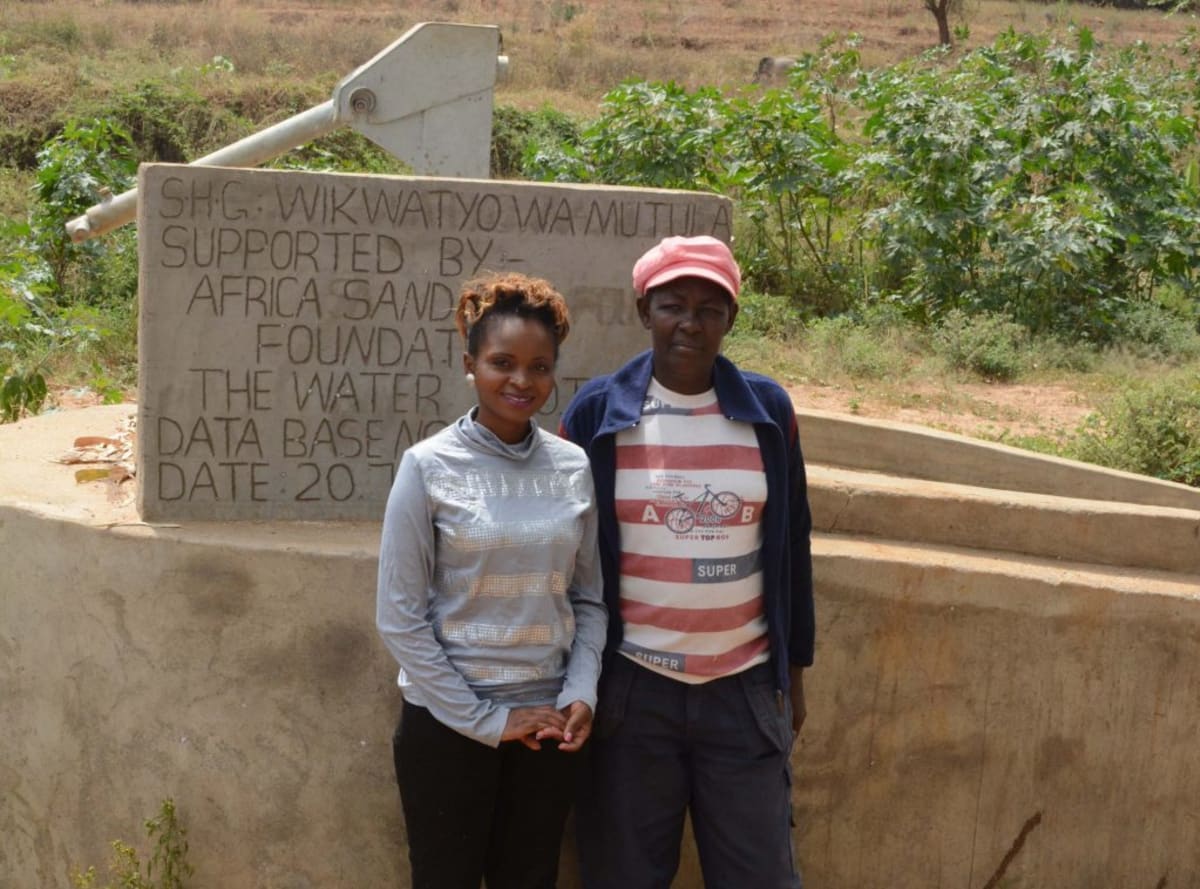This project is a part of our shared program with Africa Sand Dam Foundation. Our team is pleased to directly share the below report (edited for clarity, as needed).
Welcome to the Community
Wikwatyo wa Mutula Self-Help Group is in its third year of their five year engagement period with ASDF. During these five years, the group focuses on addressing water insecurity in the area. Their main approach to addressing this water insecurity is through the construction of sand dams to help raise the water table and transform the dry environment.
Their main economic activity is farming, with a majority of farmers keeping herds of cattle (goats, sheep and donkeys). The main source of water had always been River Thwake, a seasonal river that spans across three counties. The distance from the village to this water point was three kilometers, and water was fetched from scoop holes.
Water Situation
Since the start of Wikwatyo wa Mutula's program, this situation has changed drastically because the community has already been able to build two sand dams. They have been able to access water from these dams throughout the year, thereby reducing the distance traveled and time taken significantly. However, the community still relies on scoop holes that are unprotected and highly vulnerable to contamination. The biggest contamination threat comes from the livestock and wild animals that share the same scoop hole. This particular project will seek to address this challenge by constructing a new hand-dug well adjacent to one of the sand dams. A well will give local farmers the chance to separate water sources by use; scoop holes will be for watering animals, and the well will be for watering humans! Farmer and father Beautice Mulei echoed this thought, saying "We are afraid that the open scoop holes may have been used by animals hence contaminating them. With a protected shallow well we will control how human and livestock use the source."
A woman will tote a full 20-liter jerrycan of water on her back. When women or children fetch a great deal of water from the dam, they consolidate it in a larger barrel at home (you can see examples of these at Veronica or Mutungwa's household, under the "See Photos & Video" tab!). Families who cannot afford a larger water reservoir must leave water in the fetching containers until it runs out.
Sanitation Situation
Since this is the third year of Wikwatyo wa Mutula Self-Help Group's program, they are well on their way to improved health and living. 100% of households have a pit latrine. Over 75% of these households have hand-washing stations so that family members can wash their hands after using the latrine. These same families also have helpful tools like dish racks and clotheslines to safely dry their things. Since this is a farming community, most households have a compost pit on the edge of their property which they can later invest in their farms and gardens.
Plans: Hygiene and Sanitation Training
We will hold a one day review training for self-help group members. Our trainer decided that it would be most beneficial to focus on the way women fetch water, and with what containers. The community has heard all of this before, but needs to be convinced of the importance of covering containers and regular scrubbing and rinsing. The training facilitator will also focus on reviewing water treatment methods and the best way families can keep their drinking water safe.
Plans: Hand-Dug Well
This new well will be constructed adjacent to the group's first sand dam. The sand dam is nearing maturity, so the well will recharge quickly from the raised water table. The sand that has collected at the dam will also naturally filter the water that is drawn from the well.
The construction process is projected to take about three months. The well will be dug by community members, lined with concrete, and fitted with an AfriDev pump.

 Protected Dug Well
Protected Dug Well
 Rehabilitation Project
Rehabilitation Project


















